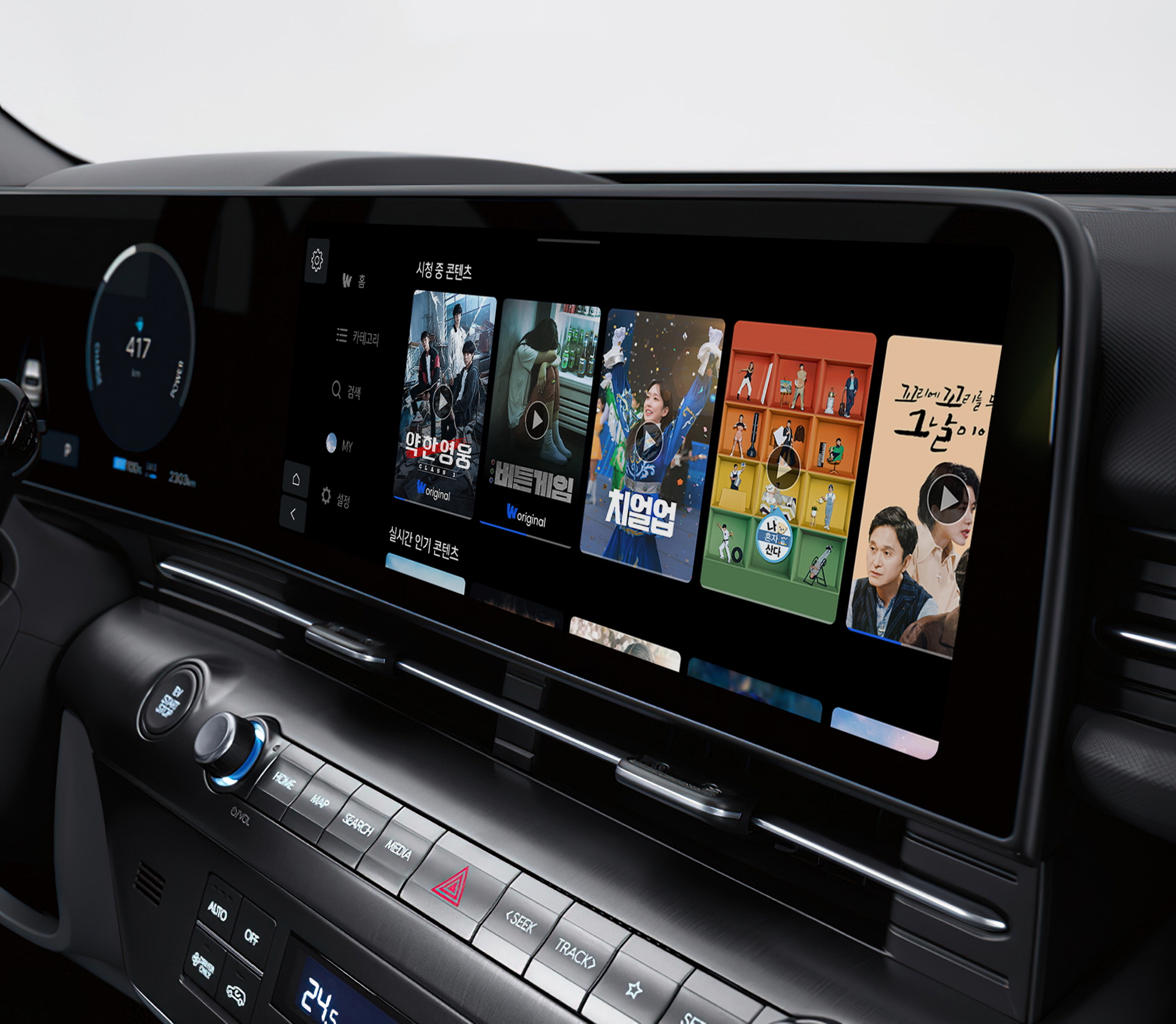
The number of subscribers to Hyundai and Kia’s global connected car services has surpassed 10 million. This achievement comes just 1 year and 10 months after reaching 5 million in August 2021, and the rapid increase in subscribers is expected to support Hyundai and Kia’s acceleration of their Software Defined Vehicle (SDV) strategy.
The connected car service combines the vehicle’s software with a wireless network, enabling customers to use their infotainment systems and smartphones for greater convenience. Beyond basic services like real-time navigation, voice recognition, and remote vehicle control, it has recently evolved to include innovative services such as remote diagnostics, over-the-air (OTA) software updates, in-car payments, and video/audio streaming.
Hyundai and Kia currently operate Hyundai BlueLink, Kia Connect, and Genesis Connected Services.
As the number of connected vehicles on the road increases, so does the volume of data generated from traffic signals, vehicle sensor information, and operational data. This rich source of big data facilitates the application of artificial intelligence deep learning technology, enabling rapid data analysis and processing to provide meaningful information.
Based on this data, it’s now possible to develop smarter and more innovative AI services, as well as to enhance existing mobility services like car sharing and ride-hailing from the customer’s perspective. In this sense, the increase in connected car service subscribers is a key factor in delivering better services to customers.
Since introducing the first connected car service in South Korea in 2003, Hyundai and Kia have expanded their reach into the global market. The overseas service began in the United States in June 2011, and the service has since grown to include countries like China, Europe, India, and most recently Singapore, offering services to customers in over 50 countries worldwide.
The global subscriber count for Hyundai and Kia’s connected car services has shown a steep increase over time, starting from 1 million in May 2018, reaching 5 million in August 2021, 8 million in October 2022, and now surpassing 10 million this month.
Notably, as Hyundai and Kia’s connected car services expand globally, the number of overseas subscribers is growing at a faster rate than domestic subscribers. In October last year, for the first time, the number of overseas subscribers exceeded the number of domestic subscribers.
If current trends continue, Hyundai and Kia anticipate that this number will reach 20 million globally, including domestic subscribers, by 2026.
Hyundai and Kia plan to actively explore service launches in regions like Southeast Asia where connected car services are not yet operational, aiming to achieve economies of scale and strengthening partnerships with major global service providers to continuously develop innovative services that reflect diverse customer demands.
Hyundai and Kia’s connected car services are expected to further evolve in line with their transition to SDV systems.
Last October, Hyundai and Kia unveiled their SDV vision and strategy at the ‘Unlock the Software Age’ event, announcing plans to apply wireless software updates as a standard feature in all future models.
They are integrating vehicle controllers based on a Domain Centralized Architecture across four areas: ▲Electrical and Convenience ▲Driving Performance ▲Infotainment ▲Advanced Driver Assistance Systems, with the ultimate aim of advancing to a centralized architecture for unified control.
Moreover, as mobility devices connect to various services, a new mobility ecosystem is being created, where extensive mobility data and AI technology learn user intentions to ensure all experiences are seamlessly connected from a holistic customer experience perspective in software and related device development.
Hyundai and Kia’s Infotainment Development Center Director, Kwon Haeyoung, stated, “We plan to keep presenting connected car services that satisfy customers by continuously combining and processing various data, centered around software technologies that connect every mobility journey like a flowing stream,” and added, “We will expand the ecosystem to offer more personalized services for our customers’ car lives.”
By Lee Sang-jin daedusj@autodiary.kr

